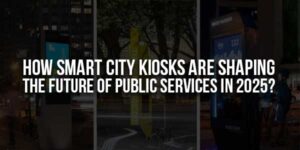
Due to the competitive job market, employee engagement and retention are more important than ever. Companies need to go beyond traditional methods of motivating employees if they want to attract and retain top talent. Engaged employees are more productive, contribute positively to workplace culture, and are less likely to leave for other opportunities. On the other hand, high turnover rates can lead to increased costs, disrupted workflows, and lost institutional knowledge. To succeed, businesses must adopt innovative strategies that foster deeper employee engagement and ensure long-term retention. Here are some cutting-edge approaches to achieve both.
Table of Contents
1.) Personalized Employee Development Programs:
Personalized employee development is a growing trend that goes beyond one-size-fits-all training programs. Employees want to feel that their company is invested in their growth and development, and offering tailored learning paths shows that commitment. This can involve personalized career coaching, skills training, and even mentorship programs tailored to each employee’s career goals.
If you can implement tools to help employees map their current skills and align them with their future career goals, then create a personalized development plan, you can help employees build the necessary skills and competencies to advance in their careers. While you can sign up for online learning platforms, there is another solution available to you, and it could transform your entire workplace. Building your own integrated digital platform with claromentis.com lets you keep everything in one place, including your e-learning. Easily communicate with your employees, manage tasks, and enable your employees to further their knowledge to help them move up the career ladder in your company.
2.) Flexible Work Arrangements:
In a post-pandemic world, flexible work arrangements have become a crucial factor in employee engagement and retention. Employees value work-life balance, and offering flexible schedules, remote work options, or hybrid models can significantly enhance employee satisfaction. When employees have control over their work environment, they’re more likely to feel trusted and empowered, which boosts morale and loyalty.
3.) Gamification Of Workplace Tasks:
Gamification is an innovative way to increase employee engagement by making work tasks more fun and rewarding. By introducing game-like elements into daily routines, employees can earn rewards, complete challenges, and hit milestones, all while performing their regular duties. This approach not only makes work more enjoyable but also encourages healthy competition and boosts productivity.
Implement challenges for completing projects or meeting performance goals. For example, employees could receive points or badges for completing tasks ahead of schedule, collaborating effectively, or coming up with creative solutions. This fosters a positive work culture where achievements are acknowledged in real-time.

4.) Employee Wellness Programs With A Holistic Approach:
Employee well-being goes beyond physical health; it also includes mental, emotional, and financial wellness. Companies that implement comprehensive wellness programs that address these various aspects see higher employee engagement and retention. When employees feel that their well-being is prioritized, they are more likely to stay loyal to the company and maintain higher levels of productivity.
5.) Creating A Culture Of Continuous Feedback:
Gone are the days of annual performance reviews being the only source of feedback. Continuous feedback helps employees feel valued and keeps them engaged with their work. Creating a culture of open communication and regular check-ins helps build trust between employees and managers while fostering a sense of progress and growth.
6.) Opportunities For Intrapreneurship:
Intrapreneurship encourages employees to take ownership of projects and develop innovative ideas within the company, similar to entrepreneurs, just within an existing organization. Providing opportunities for intrapreneurship can ignite creativity, boost engagement, and give employees a sense of purpose and ownership over their work. It allows employees to take on new challenges and explore their potential without leaving the company.
Why not create a platform or program where employees can pitch new ideas, innovations, or projects? Provide resources and support for employees who want to develop these ideas into actionable initiatives. Or allow employees to take full ownership of specific projects, empowering them to lead initiatives from start to finish. This gives them a sense of autonomy and accomplishment.
Conclusion:
Boosting employee engagement and retention requires more than just competitive salaries and benefits. Companies must adopt innovative strategies that address the needs and desires of today’s workforce. These approaches improve employee satisfaction and contribute to long-term organizational success.


















Be the first to write a comment.